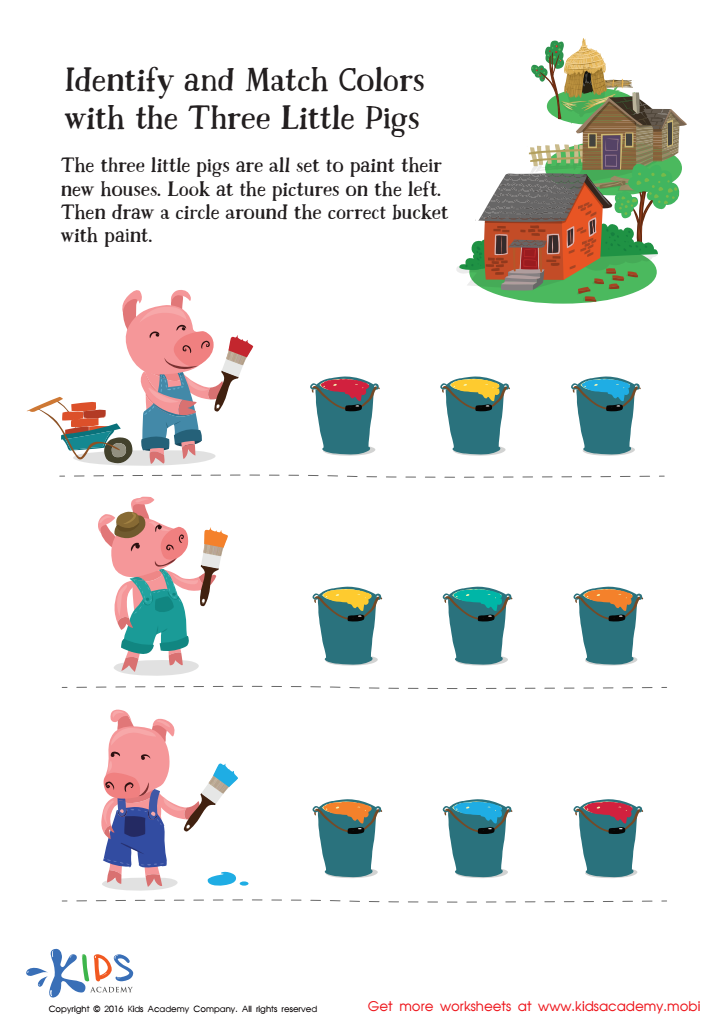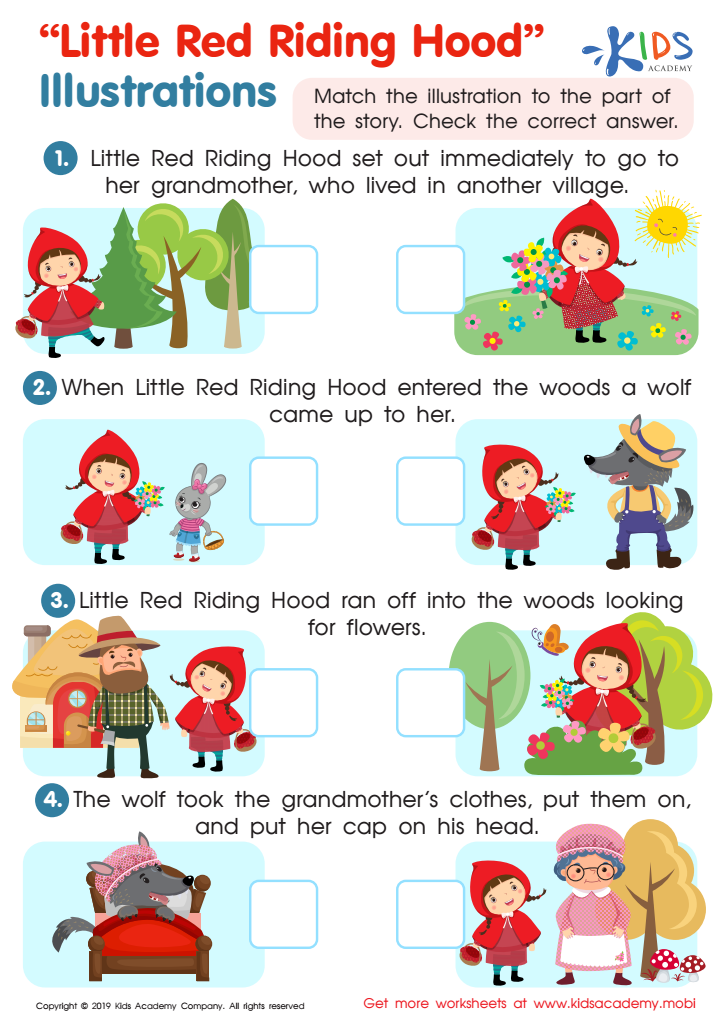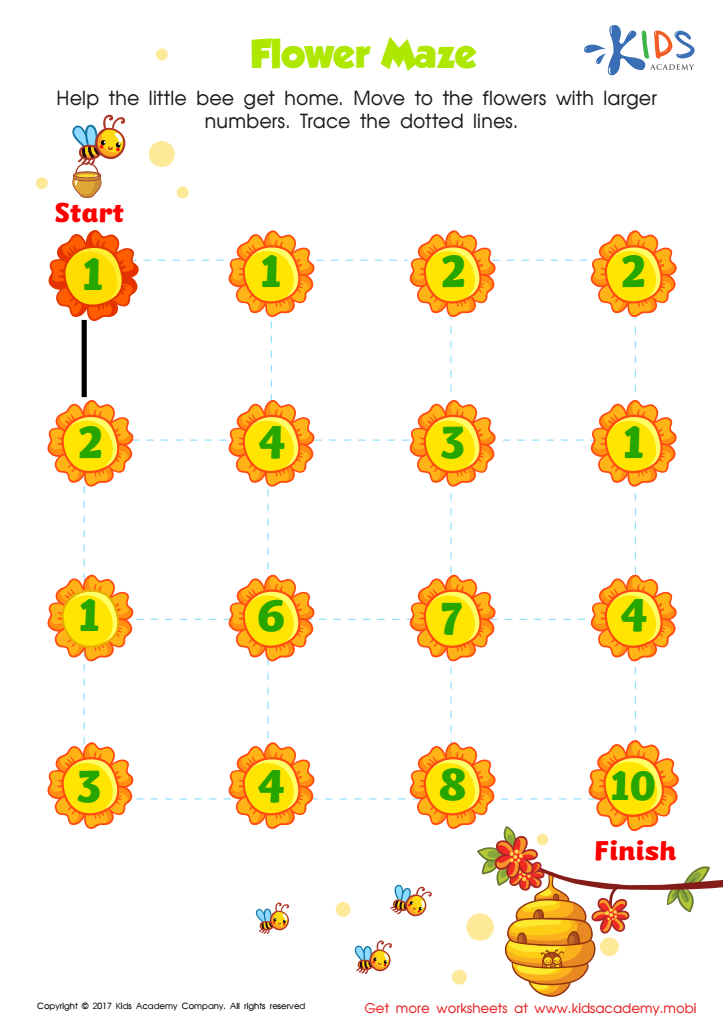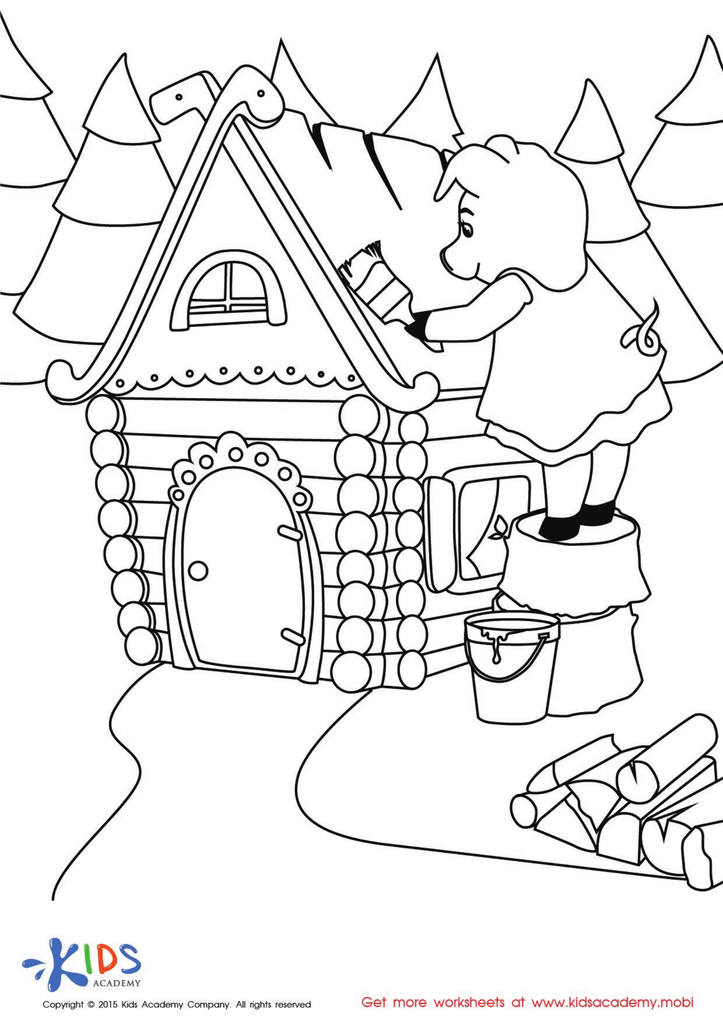Sequence Understanding Worksheets for Ages 3-4
6 filtered results
-
From - To
Welcome to our Sequence Understanding Worksheets designed for children aged 3-4! These engaging and interactive worksheets are thoughtfully crafted to help young learners grasp the concept of sequencing through fun activities. By using visuals and simple tasks, children will enhance their cognitive skills, develop critical thinking, and improve their ability to comprehend the order of events. Perfect for both home and classroom settings, these worksheets encourage creativity while reinforcing foundational skills necessary for future learning. Download our Sequence Understanding Worksheets today and watch your little ones thrive as they master the art of sequencing through enjoyable, hands-on experiences!


Fairy Tale Worksheet: Identify and Match Colors with Three Little Pigs


Little Red Riding Hood: Illustrations Worksheet


Alien Worksheet


The Five Little Monkeys Nursery Rhyme Worksheet


Number Maze For Kindergarten Printable


The Three Little Pigs Worksheet
Sequence understanding is a critical cognitive skill for children aged 3-4 as it forms the foundation for their learning and development. At this age, children begin to grasp the concept of sequences—comprehending the order of events or steps in transferring knowledge. This understanding is crucial for various daily activities, such as following instructions, storytelling, and problem-solving.
For parents and teachers, nurturing sequence understanding fosters a child’s ability to structure their thoughts and build logical reasoning. This foundational skill aids in the acquisition of more complex skills later on, such as reading, writing, and mathematical reasoning. Moreover, it enhances memory recall, enabling children to remember the order of events in stories or everyday interactions.
Engaging children in activities that promote sequence awareness, such as narrative play, cooking, or simple task organization, also nurtures communication skills and boosts confidence. Through these interactions, educators and parents can help children develop the ability to predict outcomes, fostering critical thinking. By prioritizing sequence understanding, both parents and teachers create an enriched learning environment where young children learn to make connections, articulate ideas, and navigate their world effectively. This pivotal skill sets the stage for lifelong learning and success.
 Assign to My Students
Assign to My Students







.jpg)












